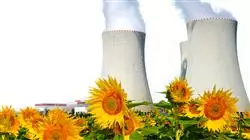University certificate
The world's largest faculty of engineering”
Why study at TECH?
This 100% online Postgraduate diploma will turn you into a specialist in environmental policies and sustainability. Take action and enroll"

Although it is true that scientific research on the impact of polluting products on people's health or the deterioration of nature has led to greater social awareness of environmental protection, it was not until the implementation of environmental policies that the fight against climate change became a real commitment.
The push carried out by science has borne fruit in a path against pollution that will have to be taken with firm steps. In this scenario, the contribution of engineering professionals is key, given their knowledge of the environment, technique and the most effective technology in this field. However, it is relevant to master other related subjects, and that is why TECH has designed this Postgraduate Diploma in Law, Sociology and Environmental Policy.
A program that will allow the graduates to deepen in the existing legal regulations, in the actions carried out in favor of the conservation and preservation of the environment, as well as in the social factors that influence the measures that can be adopted individually and from the productive sectors.
All this will be possible thanks to the exhaustive content developed Ad Hoc for this program and the multimedia resources (video summaries, detailed videos and diagrams) designed by specialists in this field. In addition, students will be provided with case studies that will be of great use and direct application in their daily practice.
An excellent opportunity for the professionals who wish to study a Postgraduate Diploma in an online and comfortable format. All students need is a computer, tablet or cell phone with an Internet connection to be able to view the syllabus of this program. In addition, this program has the Relearning system, which allows students to progress through the content in a much more agile and natural way, reducing even the long hours of study so frequent in other methodologies.
Enroll now in an academic option that will make you grow professionally thanks to a solid knowledge in environmental legislation"
ThisPostgraduate diploma in Law, Sociology and Environmental Policy contains the most complete and up-to-date program on the market. The most important features include:
- The development of case studies presented by experts of Environmental Engineering
- The graphic, schematic and eminently practical contents with which it is conceived gather scientific and practical information on those disciplines that are indispensable for professional practice
- Practical exercises where self-assessment can be used to improve learning.
- Its special emphasis on innovative methodologies
- Theoretical lessons, questions to the expert, debate forums on controversial topics, and individual reflection assignments
- Content that is accessible from any fixed or portable device with an Internet connection
With this university qualification you will have the option to delve in a dynamic way into the programs of the United Nations for the care of the environment"
The program’s teaching staff includes professionals from the field who contribute their work experience to this educational program, as well as renowned specialists from leading societies and prestigious universities.
The multimedia content, developed with the latest educational technology, will provide the professional with situated and contextual learning, i.e., a simulated environment that will provide immersive education programmed to learn in real situations.
This program is designed around Problem-Based Learning, whereby the professional must try to solve the different professional practice situations that arise throughout the program. For this purpose, students will be assisted by an innovative interactive video system created by renowned experts in the field of educational coaching with extensive experience.
Learn about economic activity, its impact on the environment and corporate social responsibility with the multimedia resources provided by TECH"

The specialists of this program have provided case studies that will be of great use and direct application in your work performance"
Syllabus
The effectiveness of the Relearning system and the latest and most recent information provided by experts on Law, Sociology and Environmental Policy will allow students of this program to obtain the necessary knowledge to boost their professional career. In this way, through three advanced modules, the graduate will be able to delve into the environmental administration and legislation, the policies carried out in this field and the circular economy. All this, in addition, with a content that will have access 24 hours a day, from any electronic device with Internet connection. .

A 100% online program that will give you the knowledge you need about Law, Sociology and Environmental Policy, and that will give a boost to your professional career"
Module 1. Environmental Administration and Legislation
1.1. Environmental Law
1.1.1. Introduction
1.1.2. What Is It?
1.1.3. What Is Environmental Law?
1.1.4. Characteristics of Environmental Law
1.1.5. Legal Nature
1.1.6. Background
1.1.7. History
1.1.8. Objective of Environmental Law
1.1.9. Principles
1.1.10. Purposes
1.2. Environmental Rights
1.2.1. What Do We Understand as Environment?
1.2.2. What Are Our Environmental Rights?
1.2.3. Right to Enjoy a Healthy Environment
1.2.4. Right of Access to Information
1.2.5. Right to Participation in Environmental Management
1.2.6. Right of Access to Environmental Justice
1.2.7. General Principles of Environmental Law
1.2.8. International Conferences and Agreements
1.2.9. Rules Protecting Environmental Rights
1.2.10. Conclusions
1.3. Environmental Law Duties
1.3.1. Introduction
1.3.2. What Are Environmental Duties?
1.3.3. What Are the Environmental Rights?
1.3.4. Duty to Conserve the Environment
1.3.5. Duty to Comply with Environmental Regulations
1.3.6. Duty of Citizen Watch
1.3.7. Duty to Inform
1.3.8. Duty for Environmental Damage
1.3.9. Conclusions
1.4. Citizen Participation in Environmental Protection
1.4.1. Introduction
1.4.2. Participatory Environmental Monitoring
1.4.3. Introduction
1.4.4. Monitoring Concept
1.4.5. What Is Participatory Environmental Monitoring?
1.4.6. What Is It for?
1.4.7. Who Can Participate?
1.4.8. Participatory Environmental Monitoring Plan
1.4.9. Area of Influence of a Project or Activity
1.4.10. Stages of Participatory Environmental Monitoring
1.4.11. Phases
1.5. United Nations Environment Program UNEP
1.5.1. Introduction
1.5.2. Definition and Concept
1.5.3. PNUMA Objectives
1.5.4. History & Evolution
1.5.5. UNEP Mission
1.5.6. Activities
1.5.7. UNEP Location
1.5.8. Fourth Montevideo Development Agenda and Periodic Review of Environmental Law
1.5.9. Conclusions
1.6. Global Environment and Climate Change
1.6.1. Introduction
1.6.2. Global Environment
1.6.3. Climate Change
1.6.4. Evolution of Climate Change Theory
1.6.5. Global Environmental Change
1.6.6. Characteristics of Global Environmental Change
1.6.7. Consequences of Global Environmental Change
1.6.8. Dangers, Risks and Future Vulnerability
1.6.9. Climate Change and Impact on Agriculture
1.6.10 Survival Strategies and Dilemmas
1.7. Environmental Rights in the World
1.7.1. Introduction
1.7.2. Countries Fighting for Environmental Rights
1.7.3. Ecuador
1.7.4. Mexico
1.7.5. Peru
1.7.6. Sustainable Development
1.7.7. History & Evolution
1.7.8. Sustainable Development (SD) Optics
Module 2. Environmental Education and Social Practices
2.1. Organizational and Business Fundamentals
2.1.1. Organizational Management
2.1.2. Types and Structure of an Organization
2.1.3. Standardization of Business Management
2.2. Sustainable Development: Business and Environment
2.2.1. Sustainable Development. Objectives and Goals
2.2.2. Economic Activity and Its Impact on the Environment
2.2.3. Corporate Social Responsibility
2.3. Environmental and Energy Issues Scope and Current Framework
2.3.1. Major Current Environmental Problems: Waste, Water and Food
2.3.2. Energy Issues Demand, Consumption and Source Distributions
2.3.3. Current Energy Projections
2.4. European Summits and the Paris Agreement
2.4.1. EU Climate Targets
2.4.2. European Summits
2.4.3. The Paris Agreement
2.5. The 2030 Agenda and the Sustainable Development Goals
2.5.1. The 2030 Agenda: Background, Approval Process and Content
2.5.2. The 17 Sustainable Development Goals (SDGs)
2.5.3. SDG Compass Guide
2.6. Circular Economy
2.6.1. Circular Economy
2.6.2. Circular Economy System Diagrams
2.7. Sustainability Reports
2.7.1. Communication of Social Responsibility Management
2.7.2. Preparing Sustainability Report Process According to GRI
Module 3. Environmental Policy
3.1. Principles of Environmental Planning
3.1.1. Introduction
3.1.2. Environmental Planning of the Territory
3.2. Right to Environmental Information and Public Participation
3.2.1. Introduction
3.2.2. Right to Environmental Information
3.2.3. Citizen Participation in Environmental Policy Issues
3.3. Land Use and Urban Organization
3.3.1. Spatial Planning as a Policy Tool
3.3.2. Policy and Urban Planning
3.4. Environmental Policy Regulations
3.4.1. European Regulations
3.4.2. Regulations in Latin America
3.4.3. U.S. Environmental Regulations
3.5. Environmental Impact Assessment
3.5.1. Historical Background
3.5.3. Environmental Impact Assessment. Analysis and Consequences
3.6. Scope of the Environmental Policy
3.6.1. Introduction to the Application of the Environmental Policy
3.6.2. History of Environmental Policy
3.6.3. Enforcement of Environmental Policy
3.7. Environmental Impact Statement
3.7.1. Introduction
3.7.2. Environmental Impact
3.7.3. Repercussions of Environmental Impact
3.8. Environmental Impact Assessment
3.8.1. Introduction to EIA
3.8.2. Environmental Impact Assessment (EIA)
3.8.3. EIA Phases
3.9. Strategic Environmental Assessment
3.9.1. Introduction to EAE
3.9.2. Strategic Environmental Assessment (SEA)
3.9.3. Phases of an SEA

This program will allow you to delve into the main historical milestones in the adoption of international environmental policies"
Postgraduate Diploma in Law, Sociology and Environmental Policy
Discover how you can make a difference in caring for the environment and contribute to sustainable development. At TECH Global University, we offer you the opportunity to become an expert in Environmental Law, Sociology and Policy. Through our online classes we will give you the flexibility to study from anywhere and at any time. You will be able to access the didactic and updated contents, in order to learn from the hand of outstanding professionals in the environmental field. This mode of study allows you to adapt your learning to your pace of life, without sacrificing the quality and support of a recognized institution, since all our students have a successful process when graduating from our institution. The Postgraduate Diploma program will provide you with the knowledge you need to understand and address environmental challenges from a variety of perspectives.
Become an expert in the School of Engineering and update your knowledge online
The importance of environmental conservation and protection is evident in today's society. There is a growing demand for professionals trained in the field, capable of designing and implementing sustainable strategies in different areas, such as the public sector, non-governmental organizations and the business world. Upon completion of the Postgraduate Diploma program in Environmental Law, Sociology and Policy at TECH Global University, you will be prepared to face the challenges and opportunities offered by the environmental field. You will contribute to the construction of a more sustainable future, generating a positive impact on your environment and opening doors to new professional opportunities. You will learn about environmental legislation, the principles of international law, public policies related to the environment and sociological theories applied to the study of environmental problems.







